Discover the vital role of ancient Egyptian farmers in sustaining their civilization through advanced agriculture, innovative irrigation techniques, and meticulous crop cultivation. Explore their daily lives, contributions, and enduring legacy that fueled Egypt’s monumental achievements.
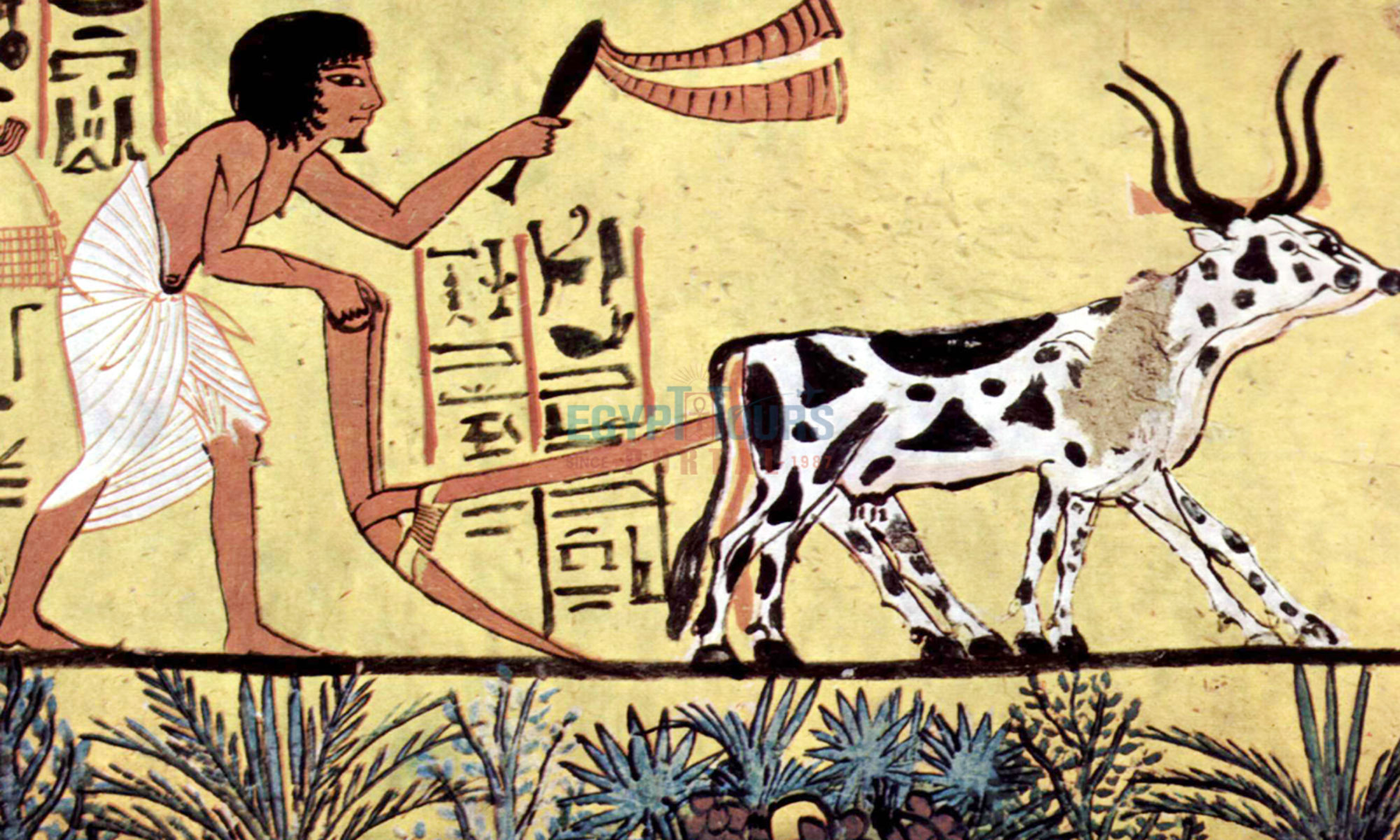
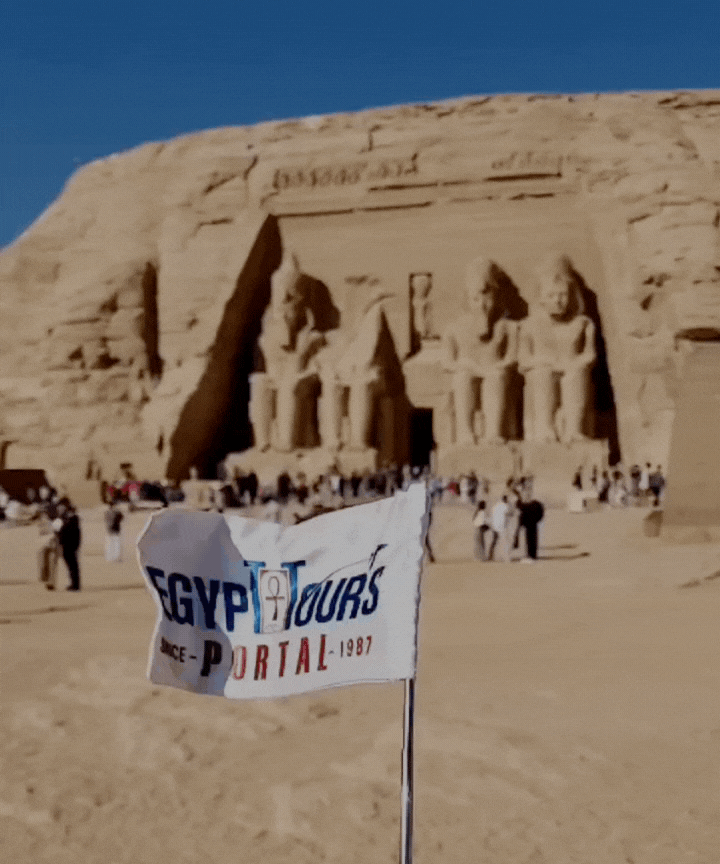
The farmers of ancient Egypt were the foundation of one of the most enduring civilizations in history. Their tireless labor sustained not only the population but also the monumental projects that defined Egypt’s grandeur, from the Pyramids of Giza to the sprawling temples of Thebes.
These agricultural workers transformed the fertile Nile Valley into the “Black Land” (Kemet), a region of unparalleled productivity amidst the arid deserts. Though their lives were marked by hard work and modest means, their contributions were indispensable, laying the groundwork for Egypt’s lasting legacy in art, architecture, and governance.
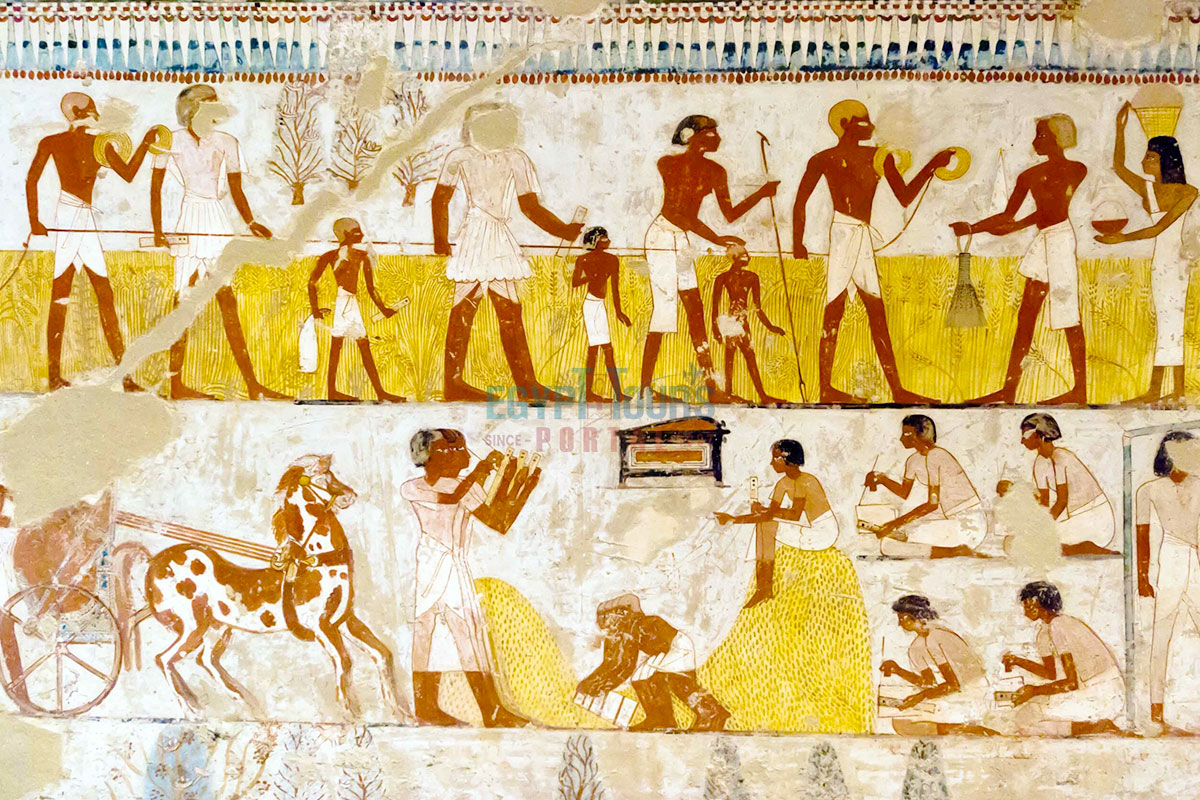
Ancient Egyptian Agriculture formed the backbone of the Economy of Ancient Egypt, anchoring its society, culture, and monumental achievements. The Nile River, often described as the “gift of Egypt,” played a central role in shaping the civilization's prosperity.
Its annual inundation, occurring from June to September, was a predictable and transformative event that deposited nutrient-rich black silt across the floodplains. This fertile “Black Land” (Kemet), in stark contrast to the barren “Red Land” (Deshret) of the surrounding deserts, sustained Egyptian society for over 3,000 years.
From the Predynastic Period (c. 6000–3150 BCE) to the Ptolemaic Dynasty (323–30 BCE), agriculture evolved into a sophisticated and efficient system. Crops such as barley and emmer wheat provided essential ingredients for bread and beer, the staples of the Egyptian diet.
Flax, grown extensively for linen production, became a critical trade commodity. Papyrus, harvested from the Nile’s marshes, served a dual purpose: it was processed into writing material and used for making items such as baskets, ropes, and even small boats.
Surplus agricultural production allowed Egypt to export goods, establishing trade links with the Levant, Mesopotamia, Nubia, and the Aegean. These exports strengthened Egypt’s economy and bolstered its political influence in the ancient world.
Farmers were integral to the state’s economic machinery. They paid taxes primarily in the form of grain and livestock, which funded vast government projects, including the construction of temples, pyramids, and irrigation networks. This taxation system, though burdensome, underpinned Egypt’s centralized economy, allowing for the maintenance of a professional bureaucracy, military campaigns, and the priesthood.
By the Middle Kingdom (c. 2055–1650 BCE), Egypt’s economic system had become highly organized, with state granaries ensuring food security during times of scarcity. Farmers’ contributions thus formed the foundation upon which the grandeur of ancient Egyptian civilization was built.

The daily lives of Ancient Egyptian farmers were deeply connected to the rhythms of the Nile and the agricultural ancient Egyptian calendar. Each year was divided into three seasons based on the river’s behavior:
Discover the dynamics, beliefs, and details of the daily life of the ancient Egyptians.
Read MoreFarmers lived in modest mudbrick houses, often consisting of two or three small rooms. These homes provided basic shelter from the elements, with flat roofs serving as storage areas or sleeping spaces during hot nights. Villages were typically situated near fields, enabling farmers to easily access their work.
Meals were simple but nourishing, reflecting the farmers’ reliance on locally grown produce. Bread, beer, onions, lentils, and occasionally fish formed the core of their diet. Despite their modest means, farmers celebrated festivals dedicated to agricultural deities, such as Hapy and Osiris, offering moments of communal joy and spiritual connection.

Ancient Egyptian farmers demonstrated remarkable ingenuity in their agricultural practices, adapting to the unique conditions of the Nile Valley.
The cornerstone of their system was basin irrigation, a method that utilized dikes, canals, and reservoirs to retain and distribute floodwaters. This allowed farmers to maximize the fertile land available and extend cultivation into drier areas.
These innovations, combined with communal labor, ensured that Egyptian agriculture remained productive and sustainable.

Religion was deeply intertwined with Egyptian agriculture, with many Ancient Egyptian Deities embodying aspects of farming and nature.
Explore more magnificent details about the rituals, beliefs, and customs of the religion of the ancient Egyptians.
Read MoreTemples, as major landowners, played a significant role in managing agriculture. Priests oversaw large estates, employing farmers to cultivate fields that supported temple activities and rituals. The Ancient Egyptian Festivals aligned with the agricultural calendar, fostering a sense of divine partnership in farmers’ work.
This integration of religion and farming reinforced the belief that agricultural labor was a sacred duty, contributing to the eternal balance of maat, the principle of harmony and justice.
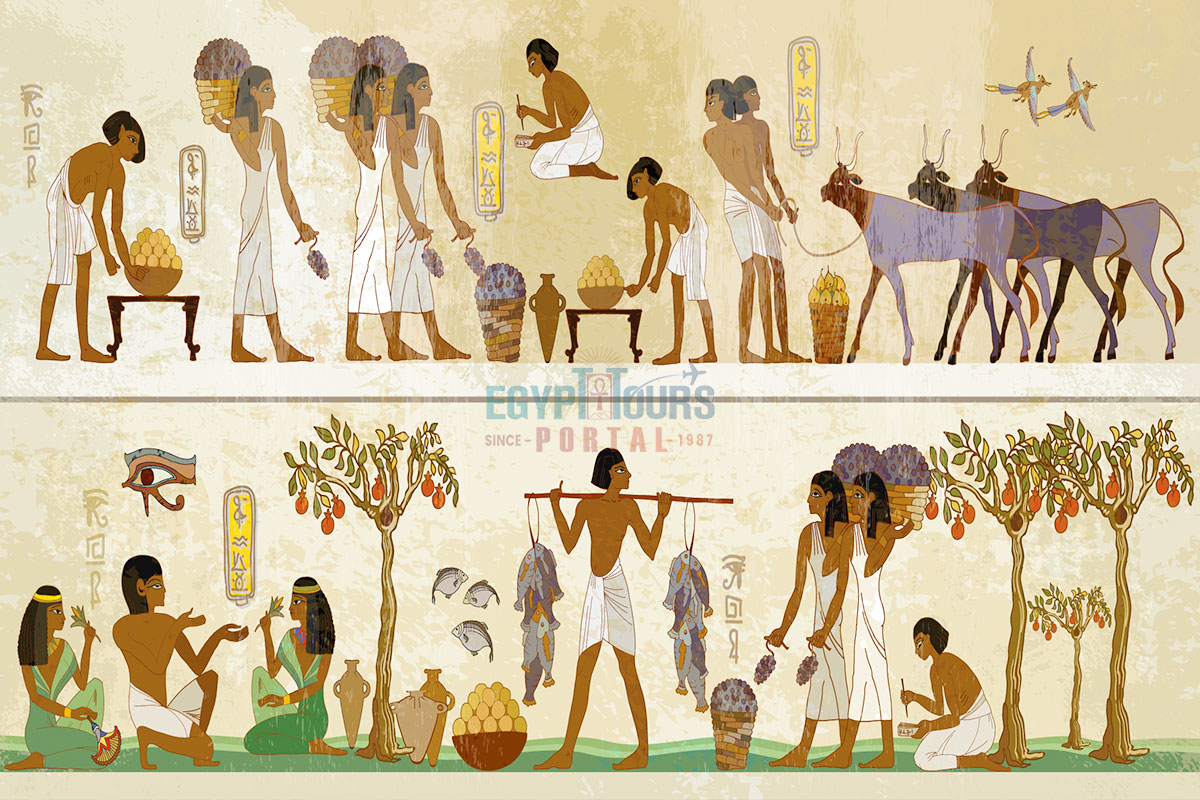
The diversity of crops cultivated by Egyptian farmers reflected their society’s needs, from sustenance to trade and industry:
This agricultural abundance not only fed the population but also fueled Egypt’s thriving trade network.
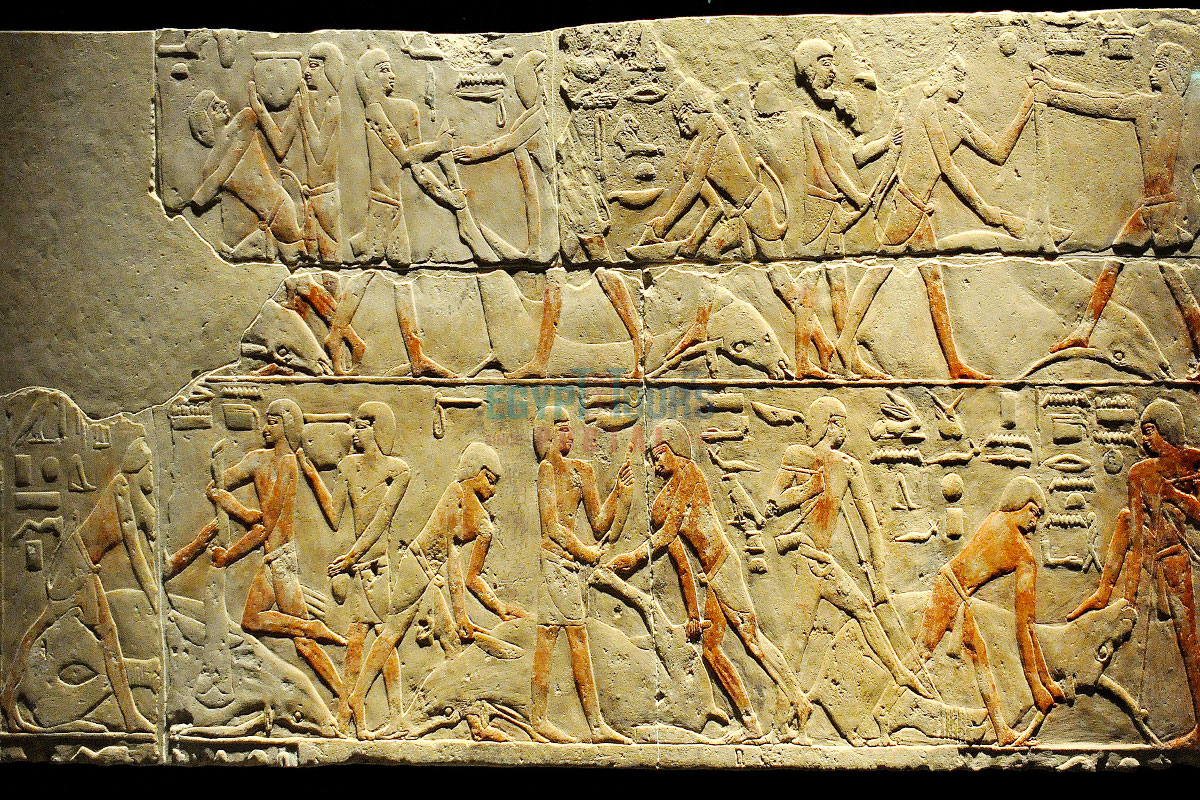
While Egyptian farmers benefited from the Nile River’s gifts, their work was fraught with challenges:
Despite these adversities, farmers displayed resilience, adapting their techniques to ensure their survival and that of their civilization.

The farmers of ancient Egypt left a lasting legacy that continues to inspire admiration. Their mastery of irrigation and agricultural practices influenced societies across the Mediterranean and the Near East. The techniques they developed, such as basin irrigation and the use of the shaduf, remain foundational in many parts of the world today.
Their labor supported not only the Egyptian population but also the monumental achievements that defined the civilization, from the Pyramids of Giza to the sprawling complexes of Karnak Temple and Luxor Temple. Tomb art, religious texts, and inscriptions celebrate the vital connection between farmers, the land, and the divine.
Ancient Egyptian Farmers are considered the Hands that fed Egypt, and their names and work are part of history. The farmers of ancient Egypt are remembered as the hands that fed a great civilization, their work ensuring the survival and prosperity of one of humanity’s most remarkable achievements.
By taking part in one of our marvelous Egypt Tours, everyone will fully discover the heritage of this majestic civilization that stood the test of time for ages and cultivated some of the most amazing crops in human history, which creates a kingdom worthy of remembering. Everyone can enjoy our magical Nile cruise leading to the heavenly destinations of Egypt.
Private 4 Days Cairo Tour Packages 4 days Cairo Egypt tour package will offer a bles...
Tour Location: Cairo – Giza...
Stunning 5 Days Cairo and Alexandria Tour Package 5 days Cairo and Alexandria tour p...
Tour Location: Cairo/Giza/Alexandria...
Exceptional 6 Days Cairo, Luxor & Aswan Tour Package 6 days Cairo, Luxor & A...
Tour Location: Cairo/Giza/Aswan/Luxor...
Amazing 7 Days Cairo and Hurghada Holiday 7 Days Cairo & Hurghada holiday will e...
Tour Location: Cairo – Giza – Hurgh...
Ancient Egyptian farmers primarily grew wheat, barley, flax, vegetables, and fruits. These crops were used for food, trade, and making textiles.
Farmers used tools like wooden plows, sickles, hoes, and shadufs to lift water to irrigate their fields.
The Nile provided fertile soil through its annual floods, essential water for irrigation, and a transportation route for distributing crops.
Peasants were the backbone of the economy, producing food for the population and surplus for trade. They also paid taxes in the form of crops or labor.
Farmers were often paid for food, grain, or other goods, but their earnings were minimal and heavily taxed.
Farmers dealt with unpredictable flooding, droughts, pests, and the burden of high taxes and labor demands from the state.
Most farmers worked on land owned by the Pharaoh, temples, or nobles. They were granted a portion of the crops for their livelihood.
Religion was central, with farmers offering prayers and rituals to gods like Osiris and Hapi, associated with agriculture and the Nile.
During the non-farming season, peasants were conscripted to work on large-scale projects like building pyramids and temples.
Peasant families worked together in the fields, lived modestly, and relied heavily on the annual harvest to sustain themselves.
The entire country of Egypt deserve to be explored with its every heavenly detail but there are places that must be seen before any other such as the breathtaking Hurghada's red sea, The wonders of Cairo the pyramids of Giza, the great sphinx, the Egyptian Museum, Khan El Khalili Bazaar, the wonders of Luxor like Valley of the Kings, Karnak & Hatshepsut temple and the wonders of Aswan such as Abu Simbel temples, Philea temple, Unfinished obelisk and The Wonders of Alexandria like Qaitbat Citadel, Pompey's Pillar and Alexandria Library. Read more about the best places to visit in Egypt.
If you want to apply for a Visa On Arrival that lasts for 30 days then you should be one of the eligible countries, have a valid passport with at least 6 months remaining and pay 25$ USD in cash, as for the E-Visa for 30 day you should have a valid passport for at least 8 months, complete the online application, pay the e-visa fee then print the e-visa to later be presented to the airport border guard. You could also be one of the lucky ones who can obtain a free visa for 90 days. Read more about Egypt travel visa.
Egypt has a variety of delicious cuisines but we recommend “Ful & Ta’meya (Fava Beans and Falafel)”, Mulukhiya, “Koshary”, a traditional Egyptian pasta dish, and Kebab & Kofta, the Egyptian traditional meat dish.
The best time to travel to Egypt is during the winter from September to April as the climate becomes a little tropical accompanied by a magical atmosphere of warm weather with a winter breeze. You will be notified in the week of your trip if the Climate is unsafe and if any changes have been made.
You should pack everything you could ever need in a small bag so you could move easily between your destinations.
We have been creating the finest vacations for more than 20 years around the most majestic destinations in Egypt. Our staff consists of the best operators, guides and drivers who dedicate all of their time & effort to make you have the perfect vacation. All of our tours are customized by Travel, Financial & Time consultants to fit your every possible need during your vacation. It doesn't go without saying that your safety and comfort are our main priority and all of our resources will be directed to provide the finest atmosphere until you return home.
You will feel safe in Egypt as the current atmosphere of the country is quite peaceful after the government took powerful measures like restructuring the entire tourist police to include all the important and tourist attractions in Egypt. Read more about is it safe to travel to Egypt.
Wear whatever feels right and comfortable. It is advised to wear something light and comfortable footwear like a closed-toe shoe to sustain the terrain of Egypt. Put on sun block during your time in Egypt in the summer to protect yourself from the sun.
The best activity is by far boarding a Nile Cruise between Luxor and Aswan or Vise Versa. Witness the beauty of Egypt from a hot balloon or a plane and try all the delicious Egyptian cuisines and drinks plus shopping in old Cairo. Explore the allure and wonders of the red sea in the magical city resorts of Egypt like Hurghada and many more by diving and snorkeling in the marine life or Hurghada. Behold the mesmerizing western desert by a safari trip under the heavenly Egyptian skies.
There are a lot of public holidays in Egypt too many to count either religious or nation, the most important festivals are the holy month of Ramadan which ends with Eid Al Fitr, Christmas and new years eve. Read more about festivals & publich holidays in Egypt.
Egypt is considered to be one of the most liberal Islamic countries but it has become a little bit conservative in the last couple of decades so it is advised to avoid showing your chest, shoulders or legs below the knees.
Arabic is the official language and Most Egyptians, who live in the cities, speak or understand English or at least some English words or phrases. Fewer Egyptians can speak French, Italian, Spanish, and German. Professional tour guides, who work in the tourism sector, are equipped to handle visitors who cannot speak Arabic and they will speak enough English and other languages to fulfill the needs of all our clients.
The fastest way is a car, of course, a taxi. If you are in Cairo ride a white taxi to move faster or you could board the fastest way of transportation in Egypt metro if the roads are in rush hour.
The temperature in Egypt ranges from 37c to 14 c. Summer in Egypt is somehow hot but sometimes it becomes cold at night and winter is cool and mild. The average of low temperatures vary from 9.5 °C in the wintertime to 23 °C in the summertime and the average high temperatures vary from 17 °C in the wintertime to 32 °C in the summertime. The temperature is moderate all along the coasts.
It is the home of everything a traveler might be looking for from amazing historical sites dating to more than 4000 years to enchanting city resorts & beaches. You will live the vacation you deserve as Egypt has everything you could possibly imagine.









